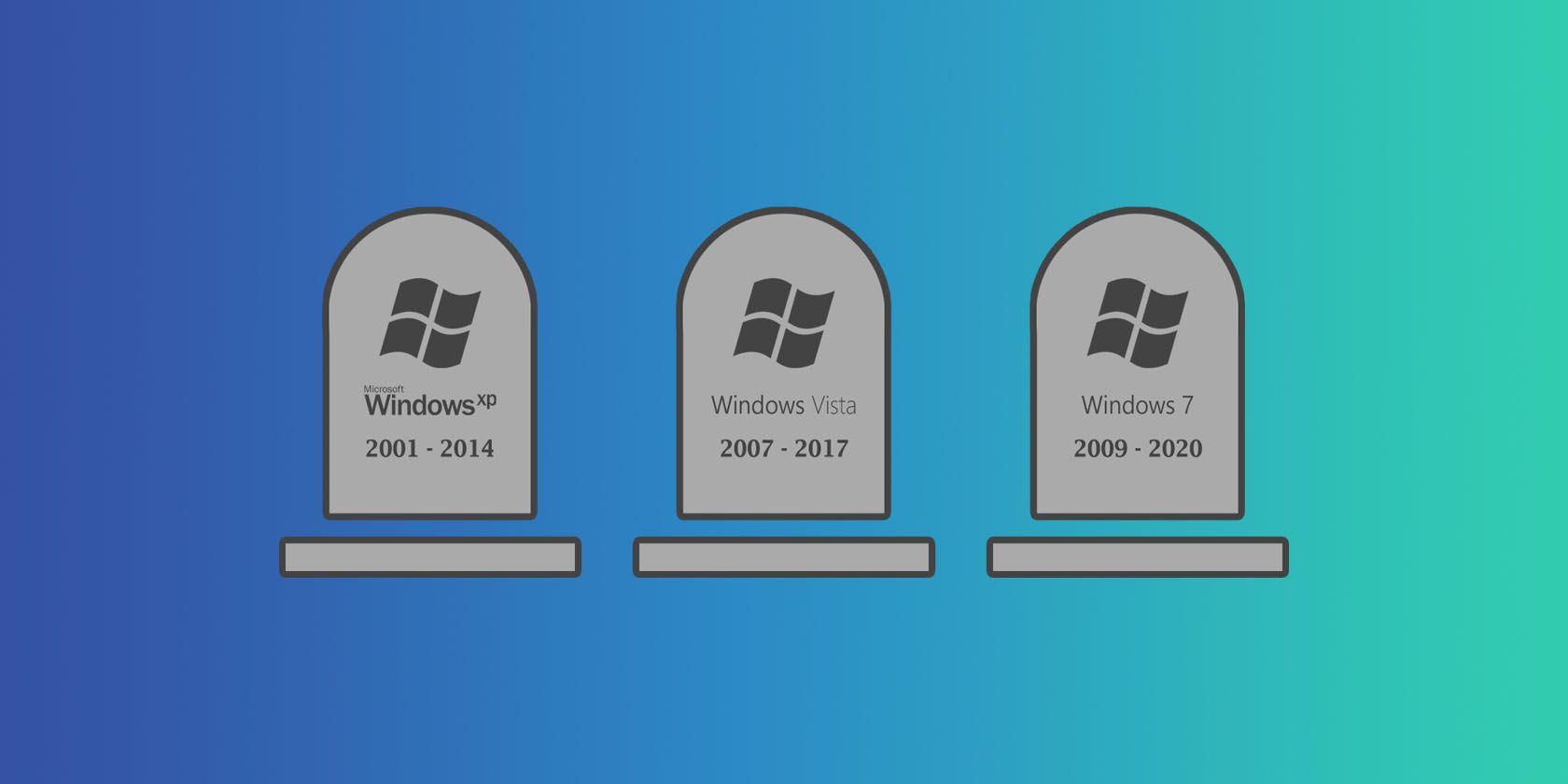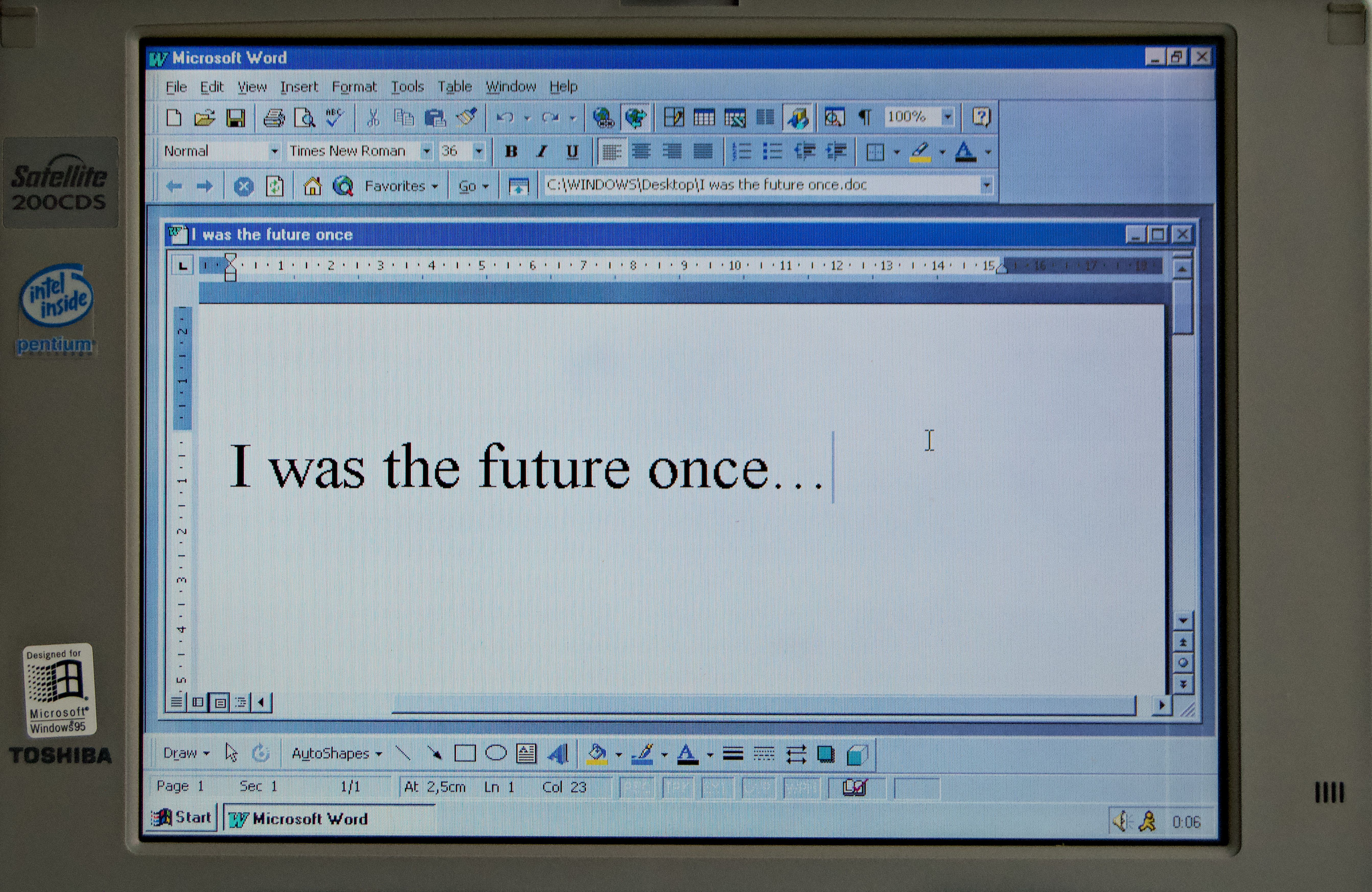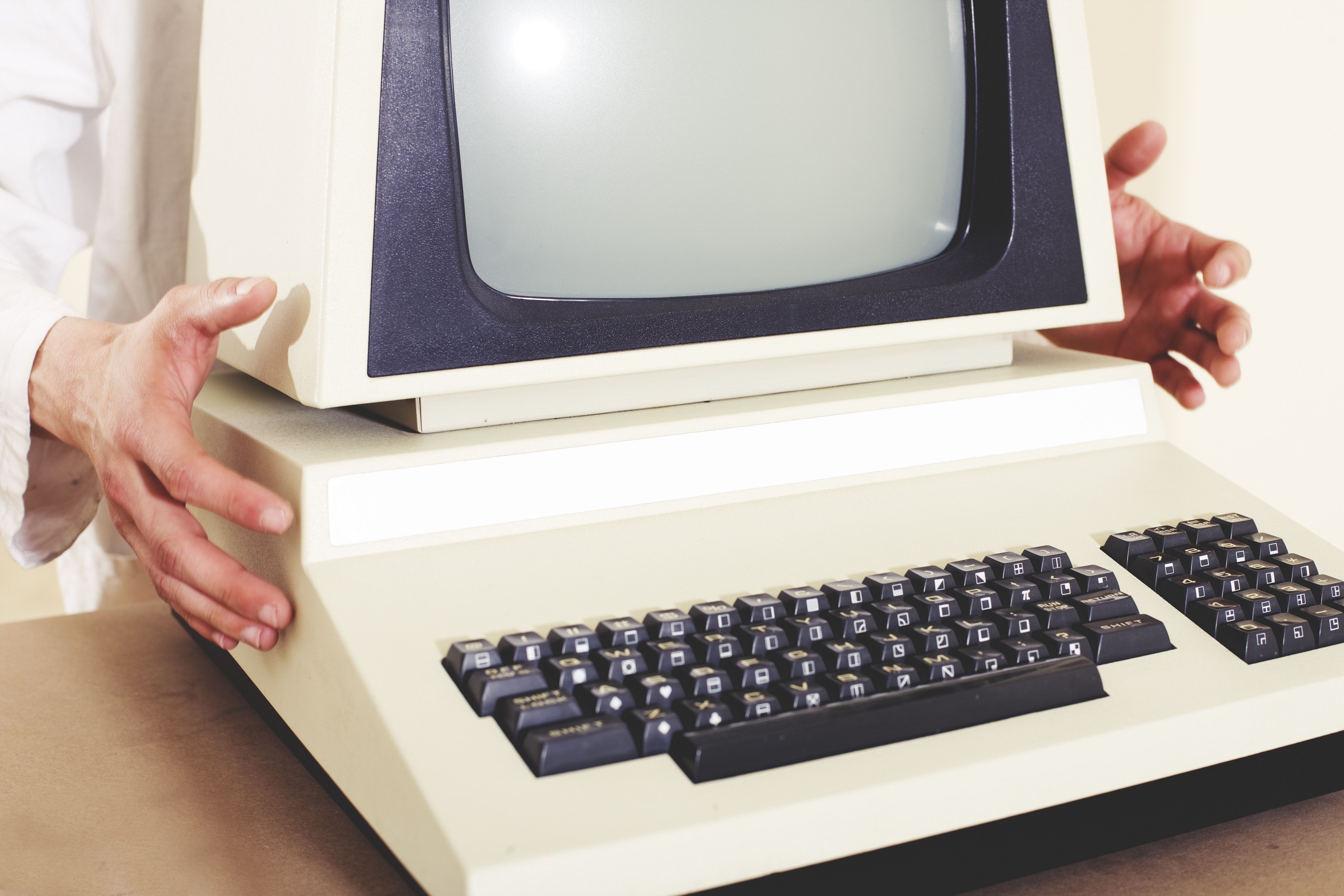Computers are not something that we replace very often. While smartphones often have a lifespan of roughly two to three years, a computer often lasts you over five years. If it's decent enough, it can still keep up 10 years after you first purchased it. But a lot of people also have a tendency not to update that hardware ever.
A study conducted by Kaspersky concluded that at least 22% of Windows users are still using Windows 7, an operating system that launched in 2009. Unfortunately, the "if it ain't broke, don't fix it" mantra doesn't apply to computers. In this article, we're going to lay down a few reasons why using ancient Windows versions in 2021 is a bad idea.
Older Windows Systems No Longer Get Updates
Windows 7 and Windows XP are two Windows versions that I keep close to my heart. But if I were to go on a nostalgia trip and use them on an older system, I would probably want to keep that system off the Internet.
The issue with old and discontinued Windows versions goes further than installing newer software. The real issue is that Microsoft has already cut support for these systems, a process called "end-of-life."
Windows XP reached end-of-life in 2014, Windows Vista reached end-of-life in 2017, and Windows 7 did in 2020. Windows 8.1 and Windows 10 are also reaching this stage in 2023 and 2025, respectively, and "mainstream" support for Windows 8.1 has already ended.
This means that if a serious security vulnerability arises for Windows XP and 7, you won't be receiving any updates to fix them. Windows 8.1 and 10 will face the same issue in the next few years, and you can bet that viruses will arise and exploit those issues.
However, there are rare instances of Microsoft breaking its own rules if a vulnerability is bad enough. For example, Microsoft famously issued Meltdown and Spectre patches for Windows XP. But for the vast majority of purposes, Microsoft sees Windows XP and Windows 7 as ancient platforms they're not supporting anymore.
For all intents and purposes, Microsoft wants you to upgrade to a newer version of Windows. There are ways you can squeeze more life out of your old Windows install, like installing antivirus software to fill the void left by discontinued security updates. However, we discourage taking this route since these solutions will only get you so far.
Other issues might also end up crippling your PC, like major browsers, programs, or even device drivers dropping support for your system. For example, the last version of Chrome that runs on Windows XP is Chrome 49, while the latest version of Chrome available as of the time of writing is Chrome 93, with Chrome 94 coming soon.
As such, if you're running a system with an ancient version of Windows, an upgrade should be on your cards already.
What About Enterprise PCs?
However, what if your PC is used in an enterprise environment? Microsoft offers a little bit of leeway for users to upgrade in these specific scenarios since it knows that upgrades in this space are considerably harder.
Even that, however, has a limit.
In the case of Windows 7, special editions of the operating system are still getting updates. Volume-licensed editions of Windows 7 Professional and Enterprise will get security updates via OEMs until January 10, 2023. Windows Embedded Standard 7 will get updates until October 10, 2023, and Windows Embedded POSReady 7 will get updates right up until 2024.
In the case of Windows XP, that extended support is already gone. While the main operating system stopped being supported in 2014, some editions used in enterprise environments, like Windows Embedded POSReady 2009 (based on Windows XP Professional), got updates until 2019.
As of the time of writing, however, all editions of Windows XP are completely unsupported.
If you happen to use one of the still supported Windows 7 versions on your enterprise system, you're probably fine for now. However, be prepared to upgrade soon. If you're using a Windows XP version, then you should upgrade right away if you have the option.
Newer versions of Windows are pretty good with legacy software support, so if your company happens to use any ancient software, you should be able to just fire it up on Windows 10 or Windows 11 normally.
If you absolutely can't upgrade a system at this moment, looking into antivirus software to reinforce your system might also be an option (I'd call it an absolute necessity, in fact). Still, you should really look into upgrades and deploy a newer solution whenever possible.
Alternative Upgrade Paths for Older PCs
There are many scenarios where you might not want to upgrade to Windows 10. Maybe your system is just too old for running it properly, or you simply don't like the changes Microsoft has done to newer versions of Windows. That's completely understandable.
But that's still not a good reason to stay on an old version of Windows. In fact, it's a sign that you should choose between alternative operating systems.
Microsoft used to have options for these legacy systems. Windows Fundamentals for Legacy PCs, a special edition of Windows XP for low-end hardware, was supported until 2014 just like regular Windows XP. It was then succeeded by Windows Thin PC, a lightweight version of Windows 7, but Microsoft will only support that until October 2021.
Instead, you could consider a Linux fork. Lightweight Linux forks are readily available to breathe new life onto an old system if system specifications are the problem. They're very barebones but should be able to run without lag or slowdowns on your old system.
Some of these forks include Xubuntu, Lubuntu, Arch Linux, and Zorin OS. You should definitely check out our picks for lightweight Linux distributions to learn more about these options.
If you only want to use the Internet and maybe run Android apps, Chrome OS also has forks to turn your old system into a Chromebook. Neverware's CloudReady and FydeOS are two options to consider. They're based on the latest version of Chromium OS (the open-source project Chrome OS is based upon), so you're sure to have the best web experience, and they're also lightweight.
What About Sticking With Windows 10 After Windows 11 is Released?
You'll probably be fine if you decide to stick to Windows 10 after 11 is released. Windows 10 will still be supported alongside Windows 11 once the new operating system is out.
In fact, Microsoft is still planning to release Windows 10 version 21H2 for those unsupported PCs that will be left behind from the Windows 11 update (which will roll out as a regular update to users with eligible PCs).
However, Windows 10's days are numbered, and Microsoft is planning to move on from it eventually, which means everything we said in this article will apply to you at some point.
All editions of Windows 10 will have their support stopped on October 14th, 2025, while users in Windows 10 Enterprise LTSC will get support until 2029. This means that you have a little over four years to move on eventually.
It's not clear yet whether Microsoft is planning on any feature updates after 21H2 is released, either. So while we might see 22H1 or even 22H2 (maybe as smaller updates), we're not expecting Microsoft to keep releasing feature updates up until 2025.
You will be fine for now. However, don't hold to your seat for too long.
Don't Use Discontinued Software
We just laid down some of the arguments against using older versions of Windows and older software in general. System updates are annoying, but in an ever-changing online world, they're more essential than they've ever been. They keep you safe online, and they keep your essential files and information safe from potential threats. On unsupported systems, you have no way of keeping some of these shields on.
Ultimately, though, the decision is up to you. But time is getting to your old Windows 7 install, and unsupported software doesn't age well, which is why we're strongly urging you to consider finally doing that upgrade you've been putting off for so long.





